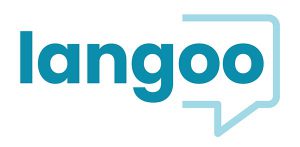Transform your Language Skills Assessment Approach with Langoo
Optimize Language Skills Assessment with Advanced Technology
Laura M. Romero
17/07/2023
Tabla de contenidos
Language skills play a crucial role in effective communication. However, the traditional methods of assessing these skills have not evolved at the pace of current demands and present various problems and limitations. Below, we will analyze some of these issues and how Langoo can help improve them.
Limitations of traditional methods
While multiple-choice exams may streamline the process and reduce costs, these exams do not take into account the specific needs of a job position or a particular curriculum. Furthermore, they do not adequately assess written and oral production skills, which are the most commonly used and also the most challenging to evaluate.
Assessing oral production involves considering pronunciation, fluency, grammar, vocabulary, and communication skills. Overall, evaluating these competencies requires a comprehensive approach that considers both language production and reception, as well as cultural competence and the cognitive processes involved. (1) This indicates that it is a more complex part of the assessment, influenced by various factors and requiring more time investment.
In summary, evaluating written and oral production skills in a language can be challenging due to their subjective and complex nature. It requires the development of valid and reliable tests, as well as consideration of various aspects of language and communication.
Massive assessment tests and their issues
Language proficiency tests, when conducted massively in institutions such as universities or HR consulting firms where large groups of people are examined, tend to be complex and present various limitations:
- The assessment of oral proficiency is subjective and can lead to conflicts. (6) (3)
- Tests may not be able to evaluate all aspects of language proficiency, such as cultural competence and the cognitive processes involved. (1)
- Tests may not be valid or reliable if not properly developed. (5)
- Tests may not be able to evaluate the interplay of production and reception (expression/comprehension). (1)
Impact of natural language processing technology
Langoo offers a unique and efficient solution. It utilizes advanced natural language processing technology to assess language skills quickly, efficiently, and accurately.
Furthermore, it is based on the Common European Framework of Reference, ensuring standardized and objective evaluation, eliminating biases, and reinforcing the concept of a completely reliable process governed by applicable standards for anyone.
Thanks to this technological advancement, we are also able to automate many of the steps required in a traditional assessment process, optimizing time and human resources.
In summary, massive language assessment tests may have limitations in evaluating oral proficiency, the ability to assess all aspects of language proficiency, test validity and reliability, assessment of progression and accumulation of language skills, and the interplay of production and reception.
Both the points we have discussed in this article and a series of other issues that we will address in future blog posts are the main reasons why optimizing language proficiency validation processes is so important. At Langoo, we continue to work on improving the quality, speed, and reliability of these processes through our technology and the team of professionals who make it possible to keep advancing.
Langoo Business
Request your DEMO today to experience everything that the platform revolutionizing language certification has to offer.

Sources:
(1) Bores, M & Camacho L. CRITERIOS PARA EVALUAR LA EXPRESIÓN ORAL Y ESCRITA EN LA CLASE DE E/LE (Congreso 51_13, 16 pag.). Princeton University y University of Texas at Dallas. Recuperado de http: ////cvc.cervantes.es/ensenanza/biblioteca_ele/aepe/pdf/congreso_51/congreso_51_13.pdf
(3)Pomposo, M. (2016) La evaluación de la competencia oral en segundas lenguas. El caso del inglés en el mundo profesional.(Madrid). Recuperado de: https://core.ac.uk/reader/81231040
(4)Mendonza, M. (2008) La evaluación en el área del lenguaje: modelo para un proceso formativo. (Alicante) Recuperado de:https://www.cervantesvirtual.com/nd/ark:/59851/bmc4m9n0
(5)Backhoff, E; Velasco, V y Peón, M. Evaluación de la competencia de expresión escrita argumentativa de estudiantes universitarios. Rev. educ. sup [online]. 2013, vol.42, n.167 [citado 2023-07-17], pp.9-39. Disponible en: <http://www.scielo.org.mx/scielo.php?script=sci_arttext&pid=S0185-27602013000300001&lng=es&nrm=iso>. ISSN 0185-2760.
(6)https://www.mometrix.com/academy/texes/bilingual-target-language-proficiency-test/





